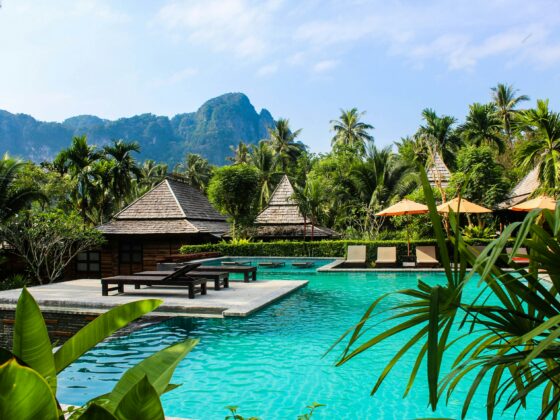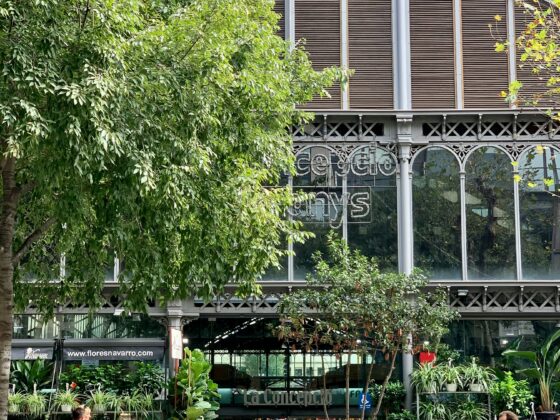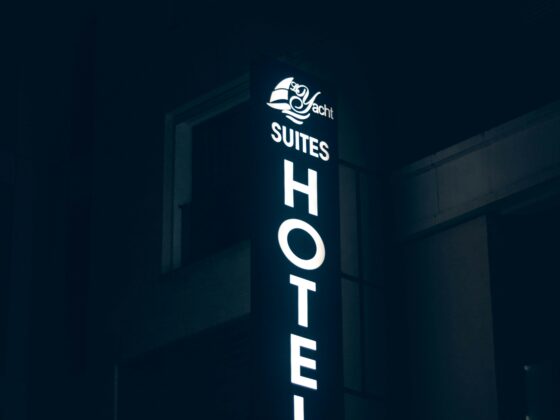LONDON – New research published today by MMGY Travel Intelligence in partnership with the European Network for Accessible Tourism (ENAT) and the World Travel & Tourism Council (WTTC) provides a comprehensive look at the travel habits, challenges and expectations of European travellers with mobility and accessibility needs or requirements.
The Portrait of European Travellers with Mobility & Accessibility Needs™ report presents findings from five major markets – the United Kingdom, France, Germany, Italy and Spain – offering detailed insights into how this group engages with the travel sector.
The study highlights that while many travellers with accessibility needs are actively participating in international travel, they continue to face a range of avoidable barriers – including inconsistent information and a lack of inclusive services across destinations. MMGY Travel Intelligence Senior Market Research Analyst Irina Tsernjak commented: Despite some progress, international travel for those with accessibility needs remains complex and challenging, calling for continued effort from the industry to tackle these issues by listening to and involving this audience at every stage.
Released at a time when the industry is seeking ways to improve inclusivity, the research underscores the commercial and social imperative for destinations, service providers and operators to better meet the needs of this group.
Key findings:
- Accessible Information – Nearly half (46%) of European travellers with accessibility needs take at least one leisure trip abroad each year, yet they often face barriers before they even pack a bag. A major challenge lies in the lack of clear, consistent and standardised accessibility information across travel websites and the destination websites themselves. This leaves many travellers to spend hours piecing together details.
Action: More honest, easy-to-find and transparent information while urging destinations to step up by proactively promoting accessible accommodations, itineraries and experiences is necessary to enhance accessibility.
- Transportation Options – Transport remains one of the most critical pinch points in accessible travel, with over 8 in 10 respondents reporting challenges during their most recent trip. Despite being the most commonly used mode of transport, air travel consistently falls short; travellers cited long waits for assistance, lack of staff training and incidents of damaged mobility equipment as persistent issues. Public transport is equally problematic, with limited access to lifts and ramps, a shortage of accessible taxis, and poorly designed stations that offer little in the way of signage or support.
Action: Improved boarding and disembarking procedures, enhanced staff assistance, and increased availability of accessible seating and space for mobility aids are a next step to better support these travellers.
- Accommodation Features – Many properties omit basic details from their websites, such as step-free access points, lift availability, bathroom accessibility or even clear confirmation that an accessible room has been booked.
Action: Accommodation providers can deepen their understanding of accessibility requirements and prioritise transparent, detailed listings that allow all travellers to book with confidence.
- Cost and Fair Pricing – The financial burden of accessible travel is a growing concern, with more than 80% of travellers with accessibility needs reporting that they spend at least 10% – and often up to 30% – of their total travel budget on accessibility-related expenses.
Action: As the sector looks to remove friction from the travel experience, addressing these hidden costs must become part of a broader strategy to make travel not only accessible but genuinely affordable and of the same quality.
- Infrastructure, Destination Accessibility and Destination Preference – Despite a growing interest in global exploration, poor infrastructure remains a major deterrent for survey respondents. Many destinations lack features such as step-free paths, ramps, lifts and accessible toilets, making safe and independent travel difficult.
Action: The research underscores that improving physical infrastructure is not merely a logistical upgrade but a foundational step towards creating truly inclusive, welcoming experiences.
Over the past three years, Europe was the most visited region by European travellers with accessibility needs (75%), followed by the USA (24%) and Africa (13%). Looking ahead, Europe remains the top region of interest, valued for its shorter travel distances, familiar infrastructure and growing accessibility efforts in major cities. Within Europe, Italy (40%), Spain (37%) and France (35%) are the most in-demand destinations, and cities like New York (46%) and Los Angeles (42%) lead in popularity in the U.S.
Notably, more than half (52%) of these travellers have taken an international multiday organised group tour or package holiday in the past two years. This figure is expected to rise to 61% in the next two years, suggesting a strong demand for curated, accessible travel experiences that offer confidence and convenience.
The opportunity for destinations is clear: Invest in inclusive infrastructure now or risk being left behind by an increasingly important segment of the global travel market.
Featuring these findings and more, Portrait of European Travellers with Mobility & Accessibility Needs™ is now available for purchase online. To learn more about MMGY Travel Intelligence, visit mmgyintel.com.
About Portrait of European Travellers with Mobility & Accessibility Needs
MMGY Travel Intelligence conducted an online survey of European travellers with mobility and accessibility needs to better understand their travel experiences. The information presented in this report is based on surveys conducted between April and May 2025 with 3,473 adults (aged 18 and older) currently residing in France, Germany, Italy, Spain and the United Kingdom. Participants included individuals with mobility impairments or long-term health conditions affecting their physical mobility or ability to carry out daily tasks (lasting at least 12 months), as well as their travel companions and caregivers. This report primarily focuses on leisure travellers, defined as those who intend to take at least one overnight leisure trip during the next two years.
About MMGY Global
MMGY Global is the world’s leading integrated marketing firm specializing in the travel, hospitality and lifestyle industries. With operating brands across the world, the award-winning organization maintains a global communications practice in all marketing channels, serving many of the world’s premier travel and tourism brands. As a company dedicated to the travel industry, MMGY Global strives to create a connected, inclusive and peaceful world by promoting travel as a cultural bridge of understanding. For more information, visit mmgyglobal.com.








